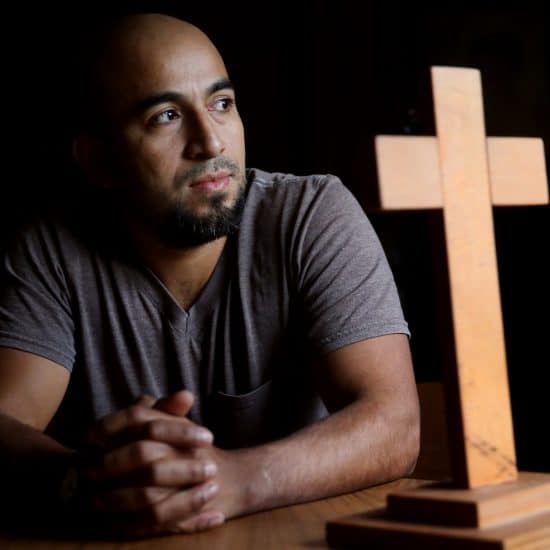By Bill Webb
Word&Way Editor
Randy Pausch died on July 25 at the age of 47, but not before he demonstrated how to live and die with pancreatic cancer. If you recognize the name, it probably is because you are one of the 10 million-plus to view the Carnegie Mellon University professor’s “last lecture” on the Internet.
 The esteemed professor delivered his lecture after he learned of his terminal illness. He spoke to a packed auditorium of friends, colleagues and students at Carnegie Mellon, in Pittsburgh, on Sept. 18, 2007. Only a month before his speech, Pausch’s doctors told him that his cancer, once in remission, had recurred. They gave the father of three young children only three to six months to live.
The esteemed professor delivered his lecture after he learned of his terminal illness. He spoke to a packed auditorium of friends, colleagues and students at Carnegie Mellon, in Pittsburgh, on Sept. 18, 2007. Only a month before his speech, Pausch’s doctors told him that his cancer, once in remission, had recurred. They gave the father of three young children only three to six months to live.
The lecture was part of the school’s former “Last Lecture” series — now called “Journeys” — usually used by professors to talk about issues that matter most to them. Pausch titled his lecture “Really Achieving Your Childhood Dreams.” He mentioned his terminal cancer, showed images of his tumors and used the rest of his 76 minutes to talk about living.
In the audience was another Carnegie Mellon alum, Jeff Zaslow, a columnist with The Wall Street Journal. Zaslow drove 300 miles to be present after he heard Pausch was to deliver the lecture. Zaslow wrote a column about it and posted a five-minute video clip on The Journal’s Web site. Other media and bloggers latched onto the story, and a video of the complete speech wound up on YouTube, setting off a viewing frenzy.
Pausch and Zaslow collaborated on a book version — The Last Lecture — that became a New York Times best-seller after its release in April by Hyperion.
How in the world did “The Last Lecture” become such an internationally popular phenomenan?
Pausch was a professor of computer science, human-computer interaction and design, and was a pioneer in virtual reality research. Enthusiastic and creative as a teacher and mentor, he was widely known in academic circles. His proudest accomplishment was the creation of Alice, a program that allows children to create 3-D animations.
Relatively young with a young family, he ate right, exercised, and didn’t drink or smoke. Energetic, he appeared to be the picture of health.
But what really connected with the 400 people in McConomy Auditorium was how a person who had so much to live for approached his sure and impending death. “If I don’t seem as depressed or morose as I should be, sorry to disappoint you,” he said after briefly referencing his gloomy prognosis in introductory remarks.
Raised a Presbyterian, Pausch certainly did not deliver a sermon. He stayed on his subject of achieving his own childhood dreams, noting that he had accomplished a few. He had experienced zero gravity, written an article for World Book Encyclopedia, won stuffed animals at amusement parks and worked briefly as a Disney “Imagineer.” He acknowledged that he still hadn’t played in the National Football League (although he later scrimmaged with the Pirtsburgh Steelers).
“I don’t know how to not have fun,” he told the audience. “I’m dying and I’m having fun. And I’m going to keep having fun every day I have left. Because there’s no other way to play it.”
A few of his other lecture quotes:
• “Be willing to apologize. Proper apologies have three parts: What I did was wrong. I’m sorry that I hurt you. How do I make it better? It’s the third part that people tend to forget.”
• “Tell the truth. All the time.”
• “Help others.”
• I’ve never understood pity and self-pity as an emotion. We have a finite amount of time. Whether short or long, it doesn’t matter. Life is to be lived.”
Pausch was surprised at all the attention his lecture received. After all, he had written it for his children, Dylan, 6, Logan, 3, and Chloe, 2, he insisted. “I knew what I was doing that day,” he wrote in the introduction to his book. “Under the ruse of giving an academic lecture, I was trying to put myself in a bottle that would one day wash up on the beach for my children.”
In the end, he helped millions more.
Pausch died at his home in Chesapeake, Va. He and his family had moved there last fall to be closer to his wife, Jai’s, relatives. His widow released this statement after his death: “I’d like to thank the millions of people who have offered their love, prayers and support. Randy was so happy and proud that the lecture and book inspired parents to revisit their priorities, particularly their relationships with their children.”
What would you say in your “last lecture,” or how would live if you knew you would die soon? How will your life impact others?


